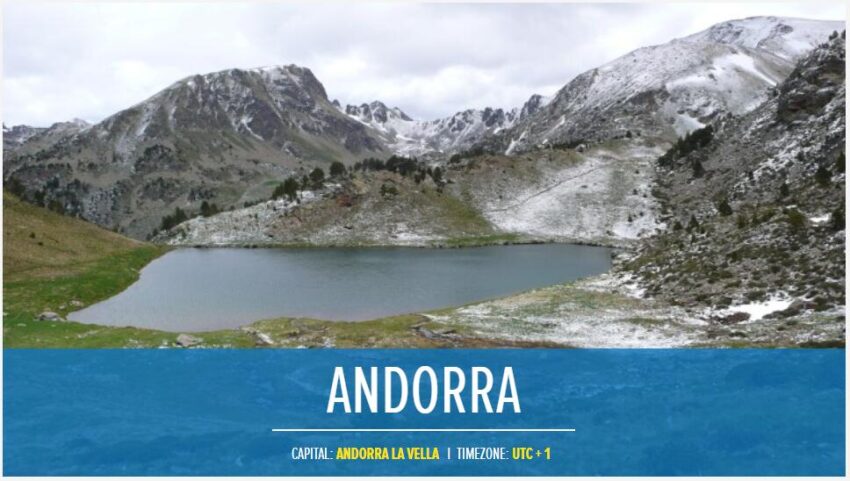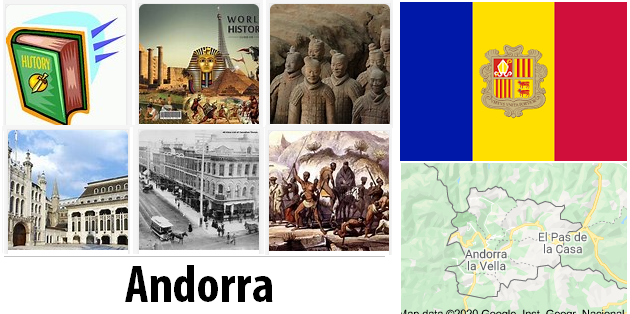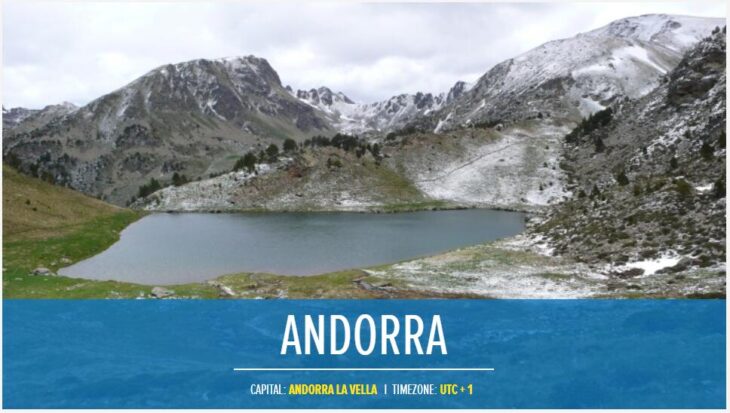The Council of Parishes, made up of 10 Councilors, also elected by the heads of the family, had the task of renting the municipal premises, granting the opening of shops and hotels, of practicing education and charity, authorizing the cutting of wood in the woods and judge on appeal the causes of the “guart” and in the first instance those relating to the parishes.
According to Abbreviationfinder, an acronym site which also features history of Andorra, the Parochial Council also had the opportunity to elect two consuls within it, the major and the minor, who were entrusted with the task of putting into practice what the Council itself was deliberating.
In criminal matters, justice was exercised by magistrates, called “Vegueres”, by the appeal judge and by ordinary judges, called “Bailes”, also in the civil field.
Despite being located between Spain and France, Andorra did not belong to either of them and even in their conflicts it always maintained a neutral position.
The internal situation of Andorra remained quiet and efficient until 1933 when protests from young people arose twice in April and August, who, tired of the feudal system still in place, were clamoring of constitutional changes.
The main request was to be able to elect the Council of the Valley by universal suffrage and to make its meetings public. The Grand Council, in fact, was deposed and replaced with a provisional one, pending free elections. With the aim of restoring order in the small country, France sent 50 of its gendarmes. This still provoked protests from young people.
The latter in the following September won the elections with their party which, however, was also supported by the two consuls, France and the bishop of Urgel. The order was immediately restored. But in July 1934 a Dutch stranger, by the uncertain name of Escassirev, became the Prince of Andorra, with the name of Boris I. The gendarmes intervened to arrest him and then expel him from the country.
Until the early 1960s, maintaining the institutions of Andorra was the prerogative of the bishop of Urgel and the President of the French Republic.
Then between the sixties and eighties there were profound changes in the state, legal and economic system. Not being able to count on its own agricultural and industrial production, Andorra was able to focus its growth on Franco-Spanish immigration, the bearer of capital that could enjoy a special tax treatment. Although tourism was to be considered mainly daily, it also provided ample incentives for the development of the country. Furthermore, laws more appropriate to the times were passed; the age of majority was raised to 18; joined the “Declaration of Human Rights” issued by the United Nations.
In January 1992 various unusual protests accelerated the reform process, and in May 1993, following a referendum held in March, a new Constitution was proclaimed.
This limited the powers of the two highest state authorities and assigned full sovereignty to the people. It also provided for the formation of trade unions, political parties and full freedom in foreign policy. As far as religion was concerned, privileging relations between that and the state were established, leaving aside the declaration of the “state religion”, while leaving freedom of worship.
From July 1993 the Principality therefore became sovereign and independent and was admitted to the United Nations. The following year he joined the Council of Europe.
The government was always made up of centrist parties and the February 1997 elections confirmed M. Fornè Molne, leader of the Liberal Union, as head of the country. The latter, in order to eliminate Andorra’s heavy public debt, issued a financial law which provided for the assignment of nominal citizenship to anyone who wanted to transfer their capital to the country.
Of course, it was a controversial law from other states that saw tax revenues in their coffers decrease.


